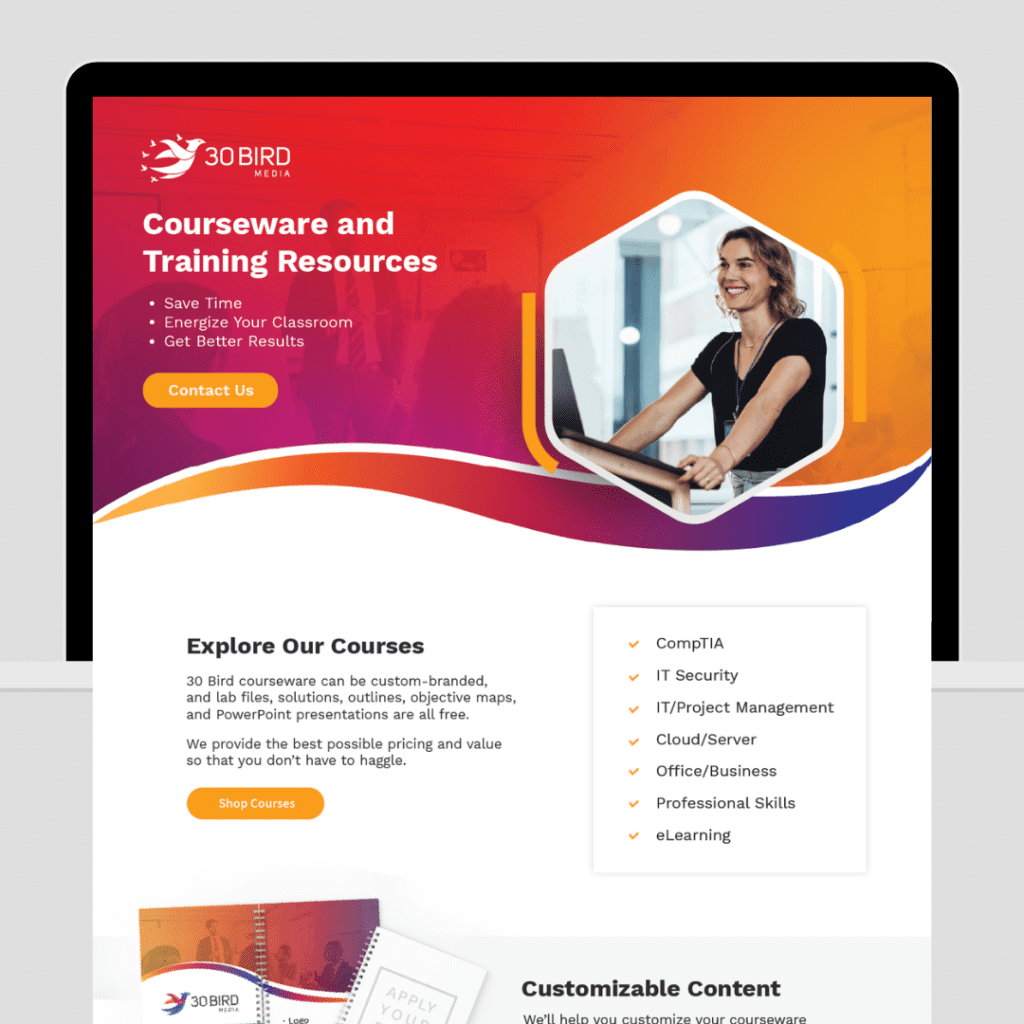Sometimes, words or phrases enter your vocabulary without you knowing quite what they are. SEO is one of those confusing phrases for a lot of people. You might have heard of it and its importance without really understanding it.
SEO is actually a pretty easy concept to understand—and one that is essential to running a successful company in the digital age. Come along with us while we explain everything you need to know about SEO.
Basic Info
Definition:
SEO—Search Engine Optimization:
“The process of maximizing the number of visitors to a particular website by ensuring that the site appears high on the list of results returned by a search engine.” (Oxford English Dictionary)
History:
The origins of SEO date back to 1997. At some point, search engineers realized that the top results on their search engines weren’t always the most useful or accurate sites for a given term.
The legend goes that the manager of classic rock band Jefferson Starship searched the band’s name and saw that their official website didn’t show up until page 4 of the results. He contacted the search engine–and thus began SEO.
Of course, the innovations that led to SEO was more complex than that, but the tale captures the basic function of SEO: to ensure that the most useful results appear at the top of internet searches.
As time went on and the internet became more and more central to the modern economy, jockeying for the top position on search engine rankings became a serious matter. It translated directly into very real dollars, and online visibility could make or break a business. That’s when SEO entered into the mainstream of American business, where it has stayed ever since.
A Moving Target
Though SEO practices and challenges change all the time, the goal is always the same: to get the most people to visit your website. What changes quickly are the best methods for achieving that goal.
The reasons the methods are so variable have to do with the ever-developing nature of the internet. Things online change rapidly, and search engineers are perpetually updating procedures and technology to reflect those changes.
You may remember the early days of SEO when the best way to get a higher ranking for your website was to repeat certain keywords over and over, hoping that would do the trick. Since then, things have become much more advanced. It’s about more than keywords–today’s search engines can check for engaging content, functionality, and responsiveness.
As search engines have become more advanced, so must your online efforts. In a world where Google is one of the largest companies in existence, it would be foolish to underestimate the business importance of SEO.
If you haven’t taken the plunge, now is the time.
How It Works
Anytime anyone does anything on the internet, it creates data. Where a visitor clicked, what terms they searched to find a site, when they visited it, how long they stayed on a site, which site they visited next–all of this information is a part of data package that is created whenever a user goes to a website. For the SEO practitioner, these pieces of information come together to tell a story.
By looking at various data points, SEO specialists can see what is engaging visitors and what isn’t. This can guide developers or webmasters to make changes that can lead to improved search engine rankings as well as better user experiences for visitors.
Unpaid Traffic Pays
There are a number of different ways that you can pay to get visitors to your website. The advantage that SEO has over many of these is that it does not require you to pay for advertising. Rather than buying ad space, you can focus your efforts on tailoring your website to what the public already wants.
Rather than try to convince customers that you have what they are looking for, the successful use of SEO enables you to anticipate what they are already looking for so you can provide it. When you give potential customers what they want, they will come to you. SEO enables you to be responsive to their interests and needs in a way that is revolutionary in the history of marketing.
Small Changes, Big Results
SEO requires you to make a number of small, seemingly insignificant changes. Put together, these changes and tweaks add up to greater online success for your business. You shouldn’t expect any single SEO move to revolutionize your business. But if you can combine smaller changes into an effective campaign, you will see the results through increased website traffic and greater sales leads. So be patient, have a plan, and work consistently toward your goals.
Search Engine Marketing
SEO has an advantage over pay-per-click advertising in that it’s free (or at least inexpensive) if you do it yourself. However, you might decide that you want to take SEO to the next level. If you want to augment your SEO efforts, take a look at Search Engine Marketing (SEM). SEM integrates the information analysis aspects of SEO, but then directs that insight toward paid advertising.
By using SEO results to figure out what customers are looking for, you can boost your chances of connecting with them by advertising within very specific parameters that are defined by your research. For example, you can advertise using keywords that your target audience is most likely to search for. Or, you can advertise to a specific geographical region with search terms that are popular in that area.
The combination of SEO and SEM is a powerful business tool in today’s digitally driven marketplace. It allows you to identify and connect with potential customers with high precision and effectiveness.
Making Sense of the Data
Analyzing data can certainly be complicated. However, it can also be unexpectedly accessible for the non-expert. The great thing about SEO is that it provides enough information for a really deep analysis, but it is also useful even if you don’t have any SEO experience. The hardest thing for the first timer to know is where to start.
Fortunately, Google has provided the ultimate guide to SEO best practices for you. Straight from the horse’s mouth, this resource clearly and expertly guides you through the process of doing Search Engine Optimization. https://support.google.com/webmasters/answer/7451184?hl=en
This document is aimed at everyone from the expert to the novice, and it promises to “make it easier for search engines to crawl, index and understand your content.” Check it out; you might find that it answers many of your looming SEO questions.
SEO Tools
With every day that passes, the tools available for do-it-yourself SEO trackers get better and better. As developers compete to offer the best software, it gets easier for the layperson to use SEO.
Here are the four best tools for improving your SEO and your business:
SpyFu—https://www.spyfu.com/
$33/month with some free utilities
The concept behind SpyFu is using your competitors’ SEO information to improve the SEO of your own business. They look at what similar businesses have tried in the past and then tell you whether or not it has worked. That way, you can learn from others’ mistakes and successes. That will save you time, money, and hassle. This shortcut to SEO success is a must-have for anyone just starting out with an SEO or SEM campaign.
Starts at $99/month with a 30-day free trial
Moz is a little more expensive than SpyFu, but it offers a great range of tracking tools and utilities to improve your web presence. They sell inbound marketing (otherwise known as lead-generation) tools as well as analytics software. The goal of Moz is to draw people to your website, rather than focusing on expanding your brand awareness outward.
Moz is considered one of the most sophisticated and complete SEO programs on the market. It makes keeping track of your efforts easy and offers a wealth of data that makes it possible to fine-tune your SEO to perfection.
Though some of their tools are complicated and might overwhelm the novice user, they provide clear-cut tutorials that can help you make the most of your subscription.
Google Search Console–https://search.google.com/search-console/welcome
Free
Unlike some of the other SEO tools listed here, the Google Search Console is completely free to use. It makes it easy for webmasters to optimize visibility and check their site’s index status. Among other info, you can where your site’s visitors are coming from, whether they’re using laptop or mobile, how long they stay on your site, and what links they click while they are there.
It also provides utilities that can check your website for errors, create a site map, and create and check a robots.txt file. Although it is fairly basic, the Google Search Console is very thorough and essential for anyone doing SEO.
Google Trends–https://trends.google.com/
Free
Keeping up with all the trends on the internet may seem impossible, but the Google Trends tool makes it easy to do just that. Because of the rapid pace of change in what’s popular online at any given minute, gaining insight into those changes requires extra help.
If you want to attract more business and more visitors to your website, you have to keep up with what potential customers are searching for. Google Trends shows you what’s happening right now online, so that you can appeal to your audience even as their interests develop and change.
*One additional thing to consider is how well these programs work together. Each of them has their strengths and it may be a good idea to use all of them at once. Try them out and see how it goes.*
For more info on SEO and advice on how to make it work for you, call Site Hub today. Our digital marketing team can help you get started on improving your website today.
Further reading:



